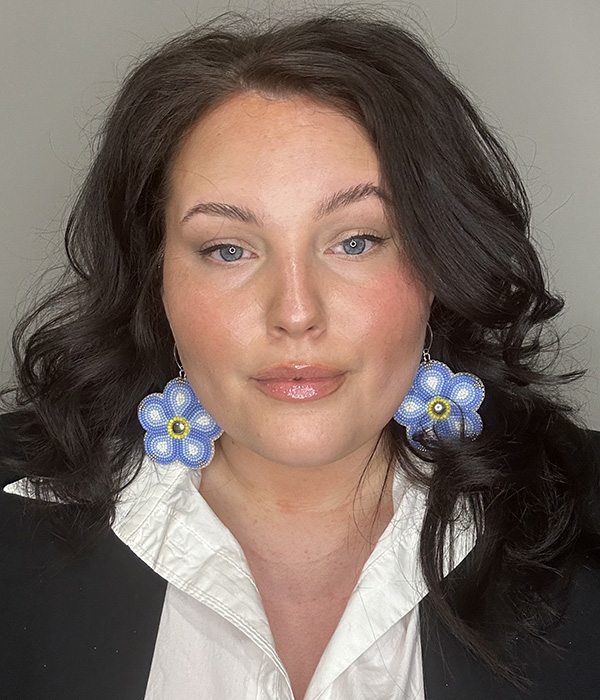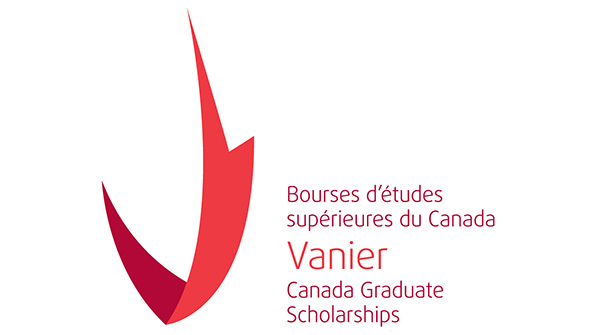 About being a Vanier Scholar
About being a Vanier Scholar
What does receiving a Vanier Scholarship mean to you
I am really grateful to Vanier Canada for supporting my research. Their support means a lot to me for several reasons, first it reduces some of the financial stress associated with conducting my project, as arts based research projects can be extremely resource intensive. Secondly, it means a lot to me that CIHR and Vanier Canada chose to fund a Red River (RR) Métis-specific health research project; currently there is a substantial lack of (RR) Métis-specific health research which is a cause for concern as Métis rights continue to be recognized in what we now call Canada.
Tell us about your Vanier research
The process of colonization continues to affect First Nations, Inuit, and Métis peoples in diverse ways depending on the group’s history, experiences, and policies. Currently there is a large gap in Métis-specific health research for two main reasons:
- the Métis are the only Indigenous group whose health is not a federal responsibility, therefore making tracking Métis medical information more difficult, and
- misidentification due to individuals with mixed ancestry self-identifying as Métis has created inaccurate statistics.
Inflammatory Bowel Disease (IBD) is a chronic and debilitating gastrointestinal condition, with two main types: Crohn’s Disease and Ulcerative Colitis. Both conditions have detrimental effects on quality of life. Globally, Canada has one of the highest rates of IBD. In other parts of the world, IBD has been linked to the process of westernization and modernization which are closely linked with the process of colonization. In addition, colonization has been recognized as a significant factor in causing disproportional rates of mental illness in Indigenous people. A recent study found that there is a correlation between childhood trauma and IBD. Despite this, there has been little investigation into the prevalence and/or effects of IBD on Indigenous populations in Canada.
This study uses a body mapping method to answer two questions:
- What are the consequences of IBD on mental health in Métis patients, and
- What is the role of colonialism on Métis identity (intergenerational trauma, stress, and shame) in these consequences?
This research provides the participants the opportunity to tell their story about the relationship between their Métis identity and IBD, and second this study hopes to be able to make a significant contribution to create a greater understanding of IBD .
About graduate student life
What inspired you to pursue a postgraduate degree?
For me I was inspired by improving Indigenous health, but more specifically Métis health due to large gaps in research on my people’s health. As Métis peoples, we have distinct experiences which also calls for distinct approaches to addressing health concerns.
Why did you choose to study at McMaster?
I chose McMaster because as an institution McMaster is recognized both domestically and internationally for its health research. It is also a place where interdisciplinary research like my own is understood and supported.
What do you love most about your graduate program?
What I love most about my program is the people in the Health, Aging, and Society Department—the faculty, staff, and students—are all very supportive. I am especially grateful for my supervisor Dr. Chelsea Gabel who, as Métis and Citizen of the Manitoba Métis Federation, is able to provide contextual and distinct support throughout my doctoral research journey.
What is your favourite thing about McMaster’s campus?
My favourite place on the McMaster Campus is the Indigenous Student Services (ISS) in L.R. Wilson Building. These Indigenous-specific spaces are critical for Indigenous students like myself, as they provide a safe space for us to study as well as share ideas and participate in cultural events. The ISS staff is really supportive and welcoming; I have spent many hours studying and reading in the ISS space.
When you’re not busy being a graduate student, how do you like to spend your free time?
In my free time I like to explore all of what the Hamilton Aaea has to offer—especially the beautiful waterfalls. I also really enjoy listening to legal analysis of contemporary court cases on Youtube.
Beyond Grad School
What do you see as the next step in your life journey?
I am not entirely sure where this journey will lead me, but my hope is that it will allow to continue to be able to make valuable contributions to Indigenous health.

